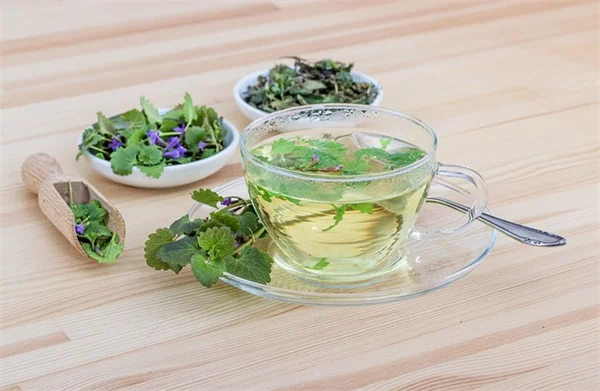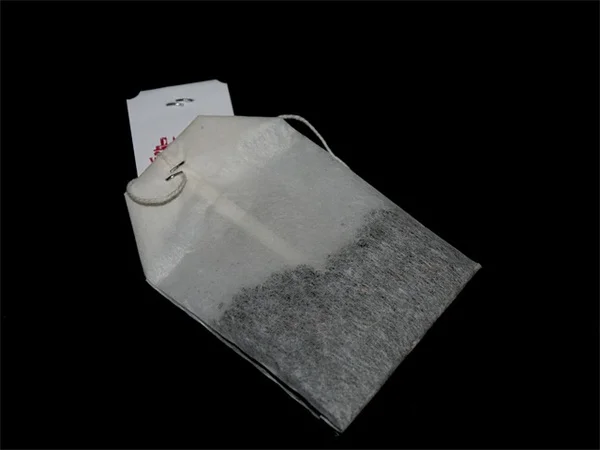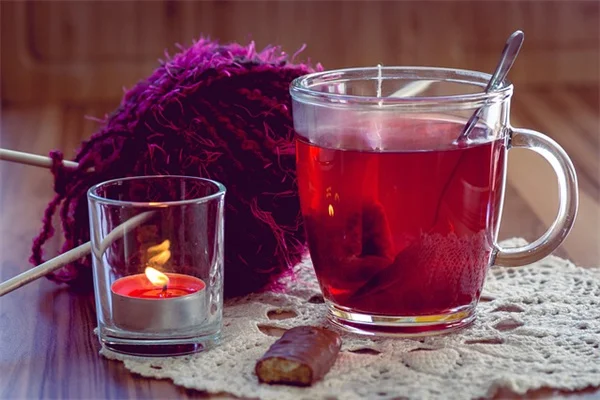Advertisement
Why do some vaccines protect you for life while others need boosters? The answer lies in how your immune system creates long-term memory. Recent research from Monash University reveals that certain vaccines trigger long-lasting antibody-producing cells with specific biological markers that act like expiration dates for immunity. Here's the deal: live-attenuated vaccines (like measles or chickenpox shots) give your immune system the full experience of the virus without the danger, creating protection that often lasts decades. Meanwhile, protein-based vaccines (like flu or COVID shots) provide shorter-term defense because they only show your immune system parts of the virus. The exciting news? Scientists are now using these discoveries to develop vaccines that could protect you longer - maybe even for life - against diseases that currently require boosters. Stick with me as we dive into the fascinating science behind vaccine longevity!
E.g. :Can Sweat Odors Really Reduce Social Anxiety? New Study Reveals Surprising Findings
- 1、Why Some Vaccines Protect You for Life While Others Need Boosters
- 2、The Science Behind Lasting Immunity
- 3、What This Means for Future Vaccines
- 4、How Vaccines Actually Work
- 5、The Exciting Road Ahead
- 6、The Hidden Factors Affecting Vaccine Effectiveness
- 7、Nutrition's Role in Vaccine Success
- 8、The Psychology of Vaccine Response
- 9、Environmental Factors You Never Considered
- 10、Practical Tips for Maximizing Vaccine Benefits
- 11、FAQs
Why Some Vaccines Protect You for Life While Others Need Boosters
The Mystery Behind Vaccine Longevity
Ever wonder why your measles shot lasts a lifetime but you need flu shots every year? Scientists at Monash University just uncovered some fascinating clues about how our bodies remember germs!
Here's the deal: When you get vaccinated, your body creates special cells that produce antibodies. Some of these cells become long-term memory cells that stick around for decades, while others disappear after a few months. The Australian researchers discovered markers that predict which cells will last longest - and this could help us design better vaccines!
Two Main Types of Vaccines
Let me break it down for you:
| Vaccine Type | How It Works | Protection Duration | Examples |
|---|---|---|---|
| Live-attenuated | Uses weakened live virus | Often lifelong | Measles, mumps, rubella |
| Protein/subunit | Uses pieces of the virus | Months to years | Flu, COVID-19, hepatitis B |
Dr. Robinson, the lead researcher, explained it perfectly: "Live vaccines give your immune system the full experience without the danger - like a flight simulator for your defenses!" That's why they typically provide longer protection.
The Science Behind Lasting Immunity
 Photos provided by pixabay
Photos provided by pixabay
How Your Body Creates Long-Term Protection
Imagine your immune system as a highly trained army. When it encounters a real threat (like with live vaccines), it develops elite special forces that remember the enemy forever. But with protein vaccines, it's more like training with photos of the bad guys - still helpful, but not as thorough.
The researchers found specific biological markers that act like expiration dates on immune cells. Cells with certain markers stick around much longer, while others fade quickly. This discovery could help scientists design vaccines that trigger more of these long-lasting cells.
Why Do We Need Boosters?
Here's a question you might be wondering: "If we know how to make vaccines last longer, why do we still need boosters?" Great question! The answer involves two key factors:
First, some viruses like influenza and COVID-19 constantly change their appearance through mutation. It's like they're wearing disguises to fool your immune system. Second, even for stable viruses, not everyone's immune system creates equally strong memory cells - especially older adults or people with certain health conditions.
Dr. Creech from Vanderbilt University puts it this way: "We're hunting for the virus's unchanging weak spots - the equivalent of finding someone's permanent fingerprint rather than their changeable hairstyle."
What This Means for Future Vaccines
The Quest for One-and-Done Shots
Picture this: getting a single vaccine in childhood that protects you for life against multiple diseases. That's the dream driving current research! Scientists are working to combine the longevity markers discovery with other advances to create vaccines that:
- Work for more people (including those with weak immune systems)
- Provide longer-lasting protection
- Require fewer or no boosters
As Dr. Robinson jokes: "We're trying to upgrade from flip phones to smartphones in the vaccine world - same basic technology, but way more powerful and longer-lasting!"
 Photos provided by pixabay
Photos provided by pixabay
How Your Body Creates Long-Term Protection
Did you know HIV changes its appearance faster than a celebrity changes outfits? That's why it's been so hard to develop an effective vaccine. But this new research gives hope that we might finally crack diseases like:
- HIV
- Certain cancers
- Tuberculosis
- Malaria
The key is identifying the parts of these germs that never change, then teaching our immune systems to target those permanent features. As we understand more about long-lasting immunity, we're getting closer to this goal every day!
How Vaccines Actually Work
Your Body's Defense Training Program
Think of vaccines like military training exercises. They safely expose your immune system to either:
1. A weakened version of the real enemy (live vaccines)
2. Just the enemy's weapons or uniforms (protein vaccines)
This training allows your body to develop specialized defenses without suffering through the actual disease. Pretty cool, right?
Why Some Immunity Lasts Decades
Here's another question people often ask: "How can some vaccines protect me for 50+ years?" The secret lies in how our immune system prioritizes threats.
For dangerous, stable diseases like measles or polio, your body creates permanent defense stations (called plasma cells) in your bone marrow. These factories continuously produce protective antibodies for decades. For less threatening or frequently changing viruses, your body doesn't invest in these permanent defenses.
As Dr. Creech explains: "Your immune system is smart - it doesn't waste resources maintaining defenses against threats that change or aren't deadly."
The Exciting Road Ahead
 Photos provided by pixabay
Photos provided by pixabay
How Your Body Creates Long-Term Protection
Future vaccines might be tailored to your specific immune system. Imagine getting a vaccine that's customized based on:
- Your age
- Your genetics
- Your previous vaccine responses
- Any health conditions you have
This personalized approach could help more people develop longer-lasting protection, especially those who currently don't respond well to vaccines.
Combination Super-Vaccines
Researchers are working on vaccines that combine multiple technologies:
Example: A COVID-19 vaccine that includes both the spike protein (which changes) and more stable viral components. This could provide protection against both current and future variants!
The Australian team's discovery about long-lasting immune cells brings us one step closer to these advanced vaccines. As Dr. Robinson says: "We're not just making vaccines last longer - we're making them work smarter for everyone."
So next time you roll up your sleeve for a shot, remember - scientists worldwide are working hard to make that protection last as long as possible! And who knows? The vaccine you get today might be protecting you well into the 22nd century thanks to these breakthroughs.
The Hidden Factors Affecting Vaccine Effectiveness
Your Lifestyle's Impact on Vaccine Response
Did you know that your daily habits can actually influence how well vaccines work for you? Researchers at Harvard Medical School found that simple lifestyle choices make a bigger difference than most people realize.
Here's something fascinating: People who exercise regularly tend to develop stronger immune responses to vaccines. One study showed that just 30 minutes of moderate exercise before getting a flu shot could boost antibody production by up to 20%! Now that's what I call a workout bonus.
Sleep - The Secret Vaccine Booster
Let's talk about something we all love - sleep! Turns out, catching those Z's does more than just make you feel refreshed.
| Sleep Duration | Antibody Response | Comparison |
|---|---|---|
| 7-9 hours | Optimal | Like having a full tank of gas |
| 5-6 hours | Reduced by 50% | Like driving with half a tank |
| Less than 5 hours | Severely weakened | Like running on fumes |
Dr. Walker from UC Berkeley puts it bluntly: "Sleep is like a software update for your immune system - skip it and you're running on outdated defenses." So maybe reschedule that vaccine appointment if you pulled an all-nighter!
Nutrition's Role in Vaccine Success
Gut Health and Immunity
Here's a fun fact - about 70% of your immune system lives in your gut! That's right, the trillions of bacteria in your digestive tract play a huge role in how you respond to vaccines.
Studies show that people with diverse gut microbiomes tend to have stronger and longer-lasting vaccine responses. Want to give your vaccines an extra edge? Try eating more fermented foods like yogurt, kefir, or sauerkraut in the weeks before and after vaccination. Your gut bugs will thank you!
Vitamin Power for Vaccine Protection
Ever wonder why some people seem to get better protection from vaccines than others? Part of the answer might be in your kitchen pantry.
Certain nutrients act like turbochargers for your immune system. Vitamin D, for example, helps your body produce more of those precious memory cells we talked about earlier. Zinc plays a crucial role in antibody production. And omega-3 fatty acids help reduce inflammation that can interfere with vaccine responses.
But here's the million-dollar question: "Should you take supplements before getting vaccinated?" The answer is maybe, but food sources are usually better. A balanced diet with fatty fish, nuts, seeds, and colorful vegetables often provides everything your immune system needs to respond well to vaccines.
The Psychology of Vaccine Response
Stress - The Silent Immunity Killer
Let's get real for a moment - we all deal with stress, but did you know it can actually weaken your vaccine response? Chronic stress floods your body with cortisol, which acts like a pause button on your immune system.
One eye-opening study found that caregivers (who typically experience high stress levels) took nearly twice as long to develop full protection from the flu vaccine compared to low-stress individuals. The good news? Simple stress-reduction techniques like deep breathing, meditation, or even laughing with friends can help counteract this effect.
The Placebo Effect in Vaccination
Here's something that might surprise you - your expectations about a vaccine can actually influence how well it works for you! This isn't magic, it's science.
Researchers have found that people who receive positive information about a vaccine beforehand often show stronger immune responses than those who hear negative messages. This "positive expectation effect" demonstrates the powerful mind-body connection in immunity. So next time you're getting vaccinated, try focusing on the protection it's providing rather than the needle!
Environmental Factors You Never Considered
Air Pollution's Sneaky Impact
You might not realize this, but the air you breathe could be affecting your vaccines. Studies show that people living in areas with high air pollution tend to have weaker responses to vaccines.
Particulate matter from pollution can interfere with your immune cells' ability to create long-lasting protection. While we can't all move to the countryside, using air purifiers at home and avoiding outdoor exercise on high-pollution days might help give your vaccines a fighting chance.
Seasonal Timing of Vaccines
Here's an interesting tidbit - the time of year you get vaccinated might matter more than you think. Your immune system actually has seasonal rhythms!
Research suggests that vaccines given in the morning tend to produce slightly better responses than afternoon vaccinations. Some studies even show seasonal variations, with stronger responses in certain months. While the differences aren't huge, if you have flexibility in scheduling your vaccines, morning appointments during colder months might offer a slight advantage.
As Dr. Phillips from Stanford jokes: "Your immune system has its own circadian rhythm - it's not a morning person, but it does its best work before lunch!"
Practical Tips for Maximizing Vaccine Benefits
Pre-Vaccine Preparation
Want to get the most out of your next vaccination? Here's a simple checklist to follow in the days before your appointment:
- Get plenty of sleep (aim for 7-9 hours)
- Stay hydrated (water is your immune system's best friend)
- Eat a balanced meal beforehand (no skipping breakfast!)
- Do some light exercise (a brisk walk works wonders)
- Practice stress reduction techniques (deep breathing, meditation)
These simple steps can help ensure your body is in the best possible state to respond to the vaccine. Think of it as prepping your immune system for its training session!
Post-Vaccine Care
What you do after vaccination matters just as much as what you do before. Here's how to support your immune system in the critical days following your shot:
1. Don't overdo the pain relievers - While it's fine to take them if you're uncomfortable, some evidence suggests they might slightly blunt the immune response if taken preventatively.
2. Keep moving - Gentle exercise boosts circulation and immune cell activity.
3. Eat immune-supportive foods - Focus on protein, colorful fruits and vegetables, and healthy fats.
4. Listen to your body - It's okay to rest if you're feeling fatigued - that's your immune system doing its job!
Remember, vaccines are one of modern medicine's greatest achievements, but they work best when we give our bodies the support they need to respond effectively. By paying attention to these often-overlooked factors, you can help ensure you're getting the maximum protection from every vaccination.
E.g. :Why Some Vaccines Last A Lifetime and Others Don't | Cedars-Sinai
FAQs
Q: What makes some vaccines last longer than others?
A: The duration of vaccine protection depends on two key factors: the type of vaccine and how your immune system responds. Live-attenuated vaccines (using weakened live viruses) typically provide longer protection because they create memory cells that can last for decades in your bone marrow. These are your body's "special forces" that remember specific germs permanently. On the other hand, protein-based vaccines (using pieces of viruses) often require boosters because they generate shorter-lived immune responses. The recent Australian study discovered specific biological markers that predict which immune cells will last longest - a breakthrough that could help design future vaccines with longer-lasting protection.
Q: Why do we need booster shots for some vaccines?
A: We need boosters for three main reasons: virus mutations, fading immunity, and individual differences. Viruses like influenza and COVID-19 constantly change their appearance through mutation, making previous immunity less effective. Even for stable viruses, some people's immune responses weaken over time - especially older adults or those with certain health conditions. Boosters "refresh" your immune memory and enhance protection. As Dr. Creech explains, it's like updating your computer's antivirus software to recognize new threats. The ultimate goal of current research is to develop vaccines that provide lifelong protection without needing boosters.
Q: Can this research help create a universal flu vaccine?
A: Absolutely! The discovery of longevity markers in immune cells brings us closer to a "universal" flu vaccine that could protect against multiple strains for years. Current flu vaccines target parts of the virus that frequently change, requiring annual updates. Scientists are now trying to identify the flu virus's unchanging components - what Dr. Creech calls its "permanent fingerprint." By combining this approach with the new findings about long-lasting immune cells, researchers hope to create a flu vaccine that provides broader, longer-lasting protection against both current and future flu variants.
Q: How do live vaccines create longer immunity than protein vaccines?
A: Live-attenuated vaccines work like a comprehensive training program for your immune system. They contain weakened but live viruses that replicate mildly in your body, giving your defenses the complete "experience" of the real infection. This thorough training creates robust memory cells that often last a lifetime. In contrast, protein vaccines only expose your immune system to fragments of the virus - like showing soldiers photos of the enemy instead of conducting full battle simulations. While safer for people with weak immune systems, this partial exposure typically generates shorter-lived protection. The new research helps explain the biological differences between these immune responses at the cellular level.
Q: Will these discoveries help develop vaccines for HIV or cancer?
A: These breakthroughs could revolutionize vaccine development for challenging diseases like HIV and certain cancers. HIV has been particularly difficult because it mutates extremely rapidly and hides from the immune system. By identifying the virus's rare stable components and combining that knowledge with the new understanding of long-lasting immune cells, scientists are making progress. Similarly for cancer, researchers are working on therapeutic vaccines that would train the immune system to recognize and destroy cancer cells. The Australian team's findings about what makes immune responses persist could help make these ambitious vaccine projects more successful.







